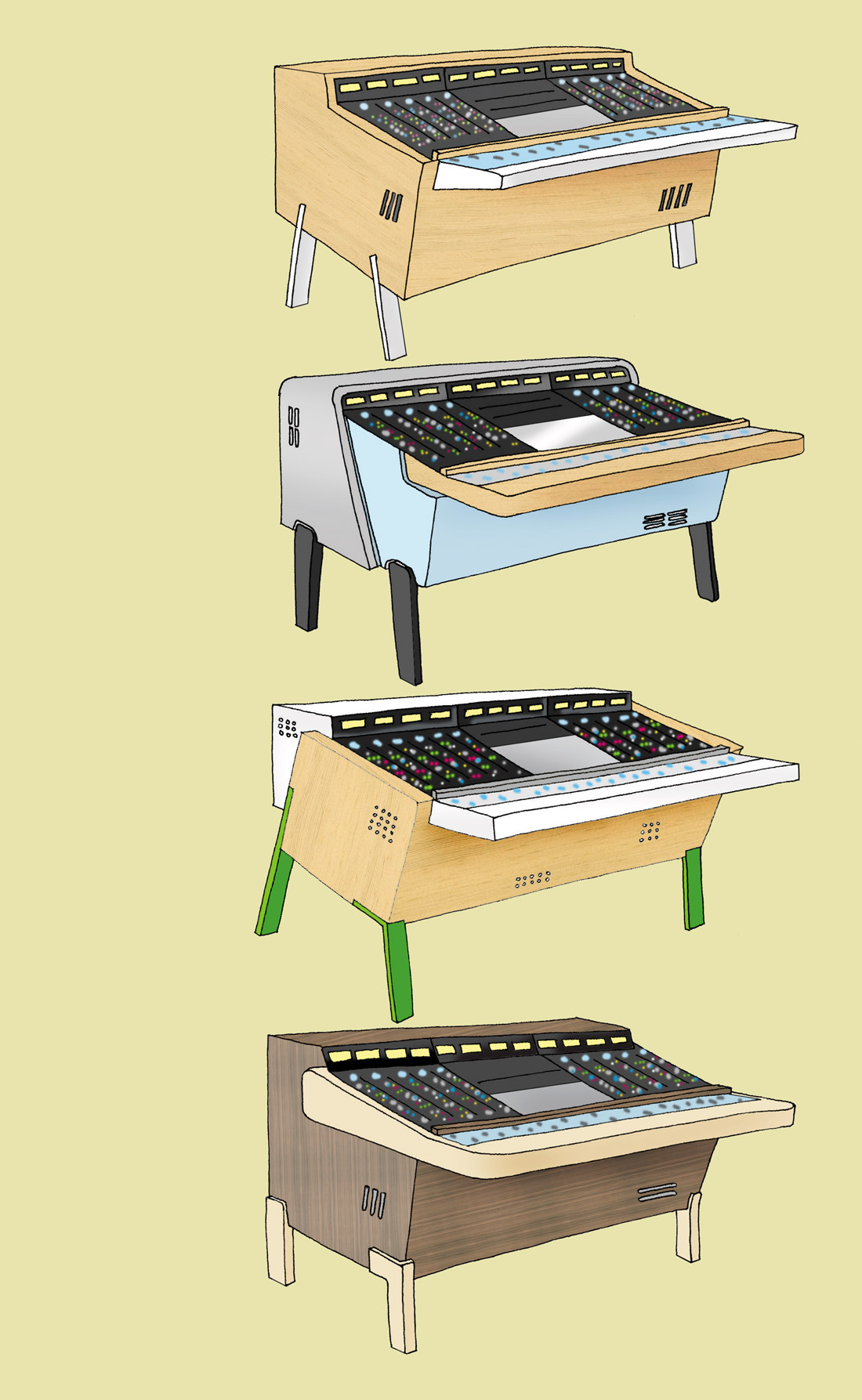The first time I came across the Little Chopper was at Assault and Battery 2 in NW London, whilst tracking instruments for a movie project. Session guitarist Tim Maple came in to lay down both clean and distorted electric guitars for a few songs. We had discussed using the studio's amplifiers as they have, amongst others, a vintage Vox AC30, a Fender Twin, and a 100 watt JCM 800 head with 4x12 cabinet. Give any recording engineer confidence, right? Well, yes - absolutely. But after Tim had heard the track, subsequently sourced a guitar, and played with a few amps, I got the assistant to put up a Neumann U 67 to start tracking some dirty guitars. First things first, I shout to the studio area, "What amp is that guys? Sounds huge!" Thinking it's got to be the JCM 800 - "The studio's Little Chopper," came the reply from the recording area, followed by my immediate trek to the amp room. Sure enough it was, and the rest of the session was used to capture some of the finest clean and gritty tones imaginable, mostly using the Little Chopper and its associated cabinet.
So to the burning questions - what exactly is this amp, what does it do, and how does it sound? The first answer is that the Little Chopper is a 7 watt, Class A head that is pretty small in size (about the size of a shoe box) and utilizes ECC81 and ECC83 valves for the preamp and an EL84 for the power stage, with high voltage supplied by an EZ81. The first control is Gain followed by Bottom, Middle, Tops, Stack, and Power. The variable Power control is not a master control as I first thought, but rather it is used to control the amount of headroom for the amps output, where you rotate anticlockwise to lower the amount of available headroom to the effect of the output becoming more and more compressed and eventually getting into overdriven and distorted territory. This is where large tonal and timbre changes also occur and can make for a very expressive response from the Little Chopper. With the two-position Stack switched to the left, the EQ knobs function as expected, where I discovered they are quite subtle, which suits my liking as I feel that is one of the reasons the Little Chopper sounds so pure. Flick the Stack switch to the alternative right position, and the Bottom and Middle controls are deactivated, and the overall tone changes to give perceivable gain and mid-frequency boosts. The Tops pot changes in this position to a high-frequency roll-off control, very adept at controlling overtones from distorted settings. The 1x12 cabinet is fairly large for a single 12'' speaker cabinet (as are its sonics), and it produces some really cool, open guitar sounds that are clean, powerful, and have the dynamic quality of being tight and punchy - not unlike some of the 1980s Marshall one and two-speaker cabs.
I could literally go on and on about the great tone of this amp. Low gain settings are very reminiscent to me of the creamy, chimey, bell-like qualities of Fender amps, and there is even a hint of a Vox AC30 tone at very low gain settings. Playing a single-coil Fender Strat with clean settings on the Little Chopper is no question a euphoric experience, and I can spend many hours just playing away with Hendrix and Red Hot Chili Peppers-type licks - as I'm sure you guitarists know all about, and always a sign of an amplifier's merits! Crank the Gain past 12 o'clock, and the amp gets loud and dirty. An appropriate switch to a Les Paul with humbuckers is a timely maneuver, and the distorted tone is where comparisons to traditional amplifiers cease. As the Little Chopper has a very rich, grinding, driven quality that is very unique and is equally addictive as the clean tones. Even when running the gain high, you can still hear the notes of bar chords in clear detail and with a very long and natural sustain. The frequency content is massive, and beside a comparably-sized Orange Tiny Terror I use as my regular take-me-to-studio amp, the Little Chopper seems like it's got a whole extra octave of low-end overtones, and the top is much more open with absolutely zero of the brittleness. Mess with the Power control at high gain settings, and there is a plethora of tones to be found, all oozing character. Mixed with subtle, overdriven settings, the amp is so wide in its dynamics, it becomes hugely expressive.
Purchasing a Little Chopper as a commercial studio amp I think would be one of the smartest things you could do, as I'm sure musicians and producers would be astounded by the unique sound coming from the Little Chopper. Steve Crow, based in the UK, is the man behind the hand-made Audio Kitchen products and also works for the pro-audio manufacturer Mutronics. It's fairly obvious that Steve is reassuringly passionate about his products and is a first-rate guy to communicate with. Understandably, the price tag of over £1000 GBP for just the head may seem steep, but I think it's only the diminutive physical size and power rating of the Little Chopper that would make people draw that conclusion. That aside, and given the range of quality tones and volume it can produce, the price tag is totally warranted in my opinion. I realize I'm piling heavy on the praise for this amplifier, but try it for yourself, and see if you don't agree. (www.boutiquetronics.com for US pricing; www.audiokitchen.co.uk)




_disp_horizontal_bw.jpg)